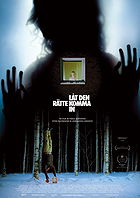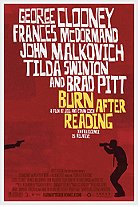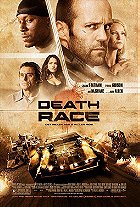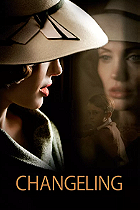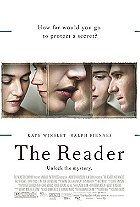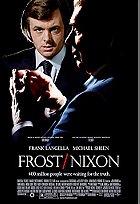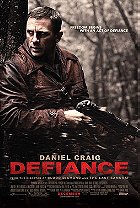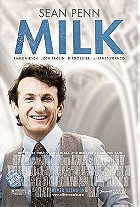Written and directed by John Patrick Shanley, Doubt - an expert screen adaptation of Shanley's own Pulitzer Prize and Tony Award winning play - is a complex and uneasy moral thriller shaped by words and characters that relays a story of doubt and certainty in direct conflict. This intellectually and emotionally fatiguing experience is a drama of the highest calibre which concerns a nun and a priest caught on opposite sides of an alleged scandal. This sets in motion an inquisition of morals, values, character, and faith - not just faith in God, but in themselves as well. It's also a tale that enters a moral quagmire from which it never fully emerges. Films often provide resolution and catharsis, but these are qualities rarely uncovered in real life situations, and this is mirrored in Shanley's screenplay. With enough dramatic meat to chew on for days, one is likely to finish watching Doubt pondering the plethora of evidence found within the movie but will be no closer to truth than any of the characters. With assured direction, a superior script, and staggering performances, Doubt isn't a comfortable experience, but it's certainly an engrossing one.
Set during the mid-60s at a Catholic School in New York, Doubt centres on the charismatic Father Flynn (Hoffman) and the strict, poisonous Sister Aloysius (Streep). When the naïve young Sister James (Adams) communicates to Sister Aloysius her guilt-inducing suspicions about the possibly inappropriate bond developing between Father Flynn and the school's sole African American child (Foster), the elder nun embarks on an unrelenting personal crusade to expose the truth. Without a single shred of evidence to corroborate her suspicions, Sister Aloysius locks in a battle of wills with Father Flynn as his sanctity and integrity as a priest is brought into question. Based on merely circumstantial evidence and her innate distrust of Flynn, Sister Aloysius first obliquely then directly accuses him of sexually abusing the boy.
The fundamental question at the core of Doubt relates to the nature of the relationship between Father Flynn and Donald Miller (the African American boy). There are several possibilities, and Shanley supplies evidence to support virtually every one of them. Shanley doesn't stack the deck and, crucially, he refuses to present the definitive truth. (Would anyone expect anything different from a movie titled Doubt?) The picture is also set in an era when priests were trusted implicitly but during which such trust was abused in certain cases (according to court cases, news reports, etc).
Lensed with arresting autumnal weight by cinematographer Roger Deakins, Doubt generates an overpowering religious grip immediately, taking the viewer into a Catholic church divided where the line of power was drawn only by gender. Shanley's feature is thinly plotted and is marred by the occasional narrative lull, but it's nonetheless enthralling. Doubt asks a simple question: did Flynn molest the boy? Writer-director Shanley employs the hook of curiosity to keep an audience riveted as the script examines the bigger picture, tackling the responsibility of power and the struggle of faith. This is packaged elegantly, but not easily. Shanley is wise enough to keep building up apprehension as Aloysius insists herself further into the fray, and while Flynn guards his innocence with less power and more desperation as the conclusion draws nearer (an ending which presents new and enduring conundrums).
Red herrings are plentiful in Doubt. Sharp framing as well as other sly cinematic devices are employed to spawn an aura of suspicion surrounding everything. Curiosity is piqued, creating a feeling of discomfort in which the viewer questions every little detail. What did that facial expression mean? Why did that character say that the way he said it? Different viewers can process this information in different ways and reach a different conclusion. This is the beauty of the screenplay and the masterful acting - it does not dictate, but instead asks each viewer to draw their own conclusions. Some may call this approach unsatisfying and manipulative...this reviewer calls it brilliant. Doubt does falter in one aspect, however. Religious allegories are overused, and eventually become intrusive. For instance, Aloysius' light bulb dies during a verbal gladiatorial match and the weather radically changes from time to time.
The world of Doubt is excellently enclosed, and separate from goings-on beyond the boundaries of this Catholic School. With a few minor exceptions, the film plays out entirely within this primary location. It certainly helps that production values are top-notch and the atmosphere is impeccably established. Deakins' cinematography is particularly mesmerising, while Howard Shore's brilliantly gentle, sparsely-used score is the icing on the cake. Shanley is skilled enough to ensure music is an ancillary device to generate power as well...the camerawork and the stellar cast are his primary tools.
Sister Aloysius: "But I have my certainty! And armed with that, I will go to your last parish, and the one before that if necessary. I'll find a parent."
To say the acting in Doubt is first-rate could be perceived as an insult; the work here is perfection. This is a showcase for the four main actors, all of which were nominated for Academy Awards.
Doubt features yet another superlative performance courtesy of Meryl Streep. The actress always takes the time to understand every character she plays. As Sister Aloysius, Streep is in fine form. She vanishes into her role, and everything - including posture, body language, mannerisms, physical appearance, accent, etc - is nailed by the award-winning actress. Philip Seymour Hoffman is one of the very few actors capable of holding his own in a scene with Streep, and that's precisely what he does. His portrayal of Father Flynn is strong and self-assured, displaying compassion and depth while his characterisation also keeps us wondering. Streep and Hoffman in particular make the film's runtime fly by with their spellbinding vocal combat, yet the interactions involving the supporting cast are equally mesmeric.
Caught in the middle of the verbal battle between the two protagonists is Amy Adams as Sister James. Shanley extracts a truly remarkable performance from Adams. Her role is less showy and more subdued, displaying credible wisdom and despair. The fourth brilliant performance is that of Viola Davis, who is simply a marvel during her 10-minute appearance. She plays the extremely minor role of Donald Miller's mother with such courage and candour that she changes the complexion of the story during the course of ten minutes.
Doubt is a powerful, provocative motion picture...undoubtedly one of the greatest movies of 2008. Vehemently a cautionary tale, it warns of the dangers of blindly following unsupported assumptions as well as displaying the serious outcomes of following such assumptions. Those who enjoy moral dramas not wrapped up in absolutes will adore mulling over what they've seen; ultimately unable to determine the best conclusion. Writer-director John Patrick Shanley's goal was to foster doubt, and he has succeeded tremendously.
8.7/10
 Login
Login
 Home
Home 183 Lists
183 Lists 1665 Reviews
1665 Reviews Collections
Collections
 0 comments,
0 comments, 